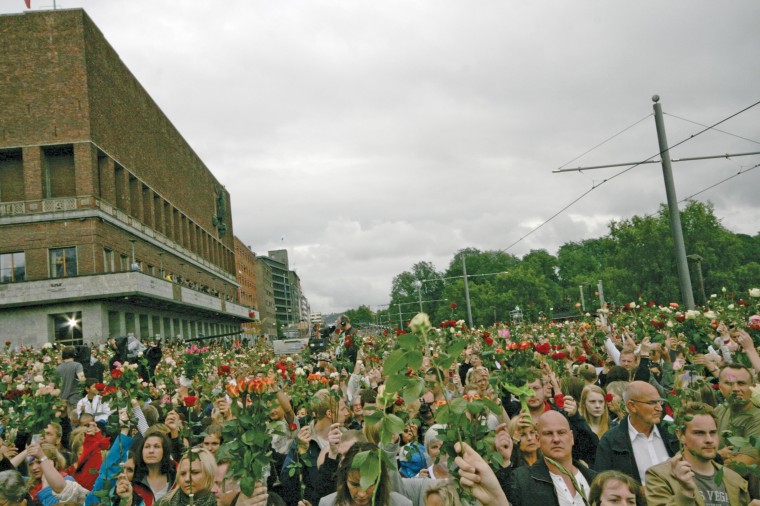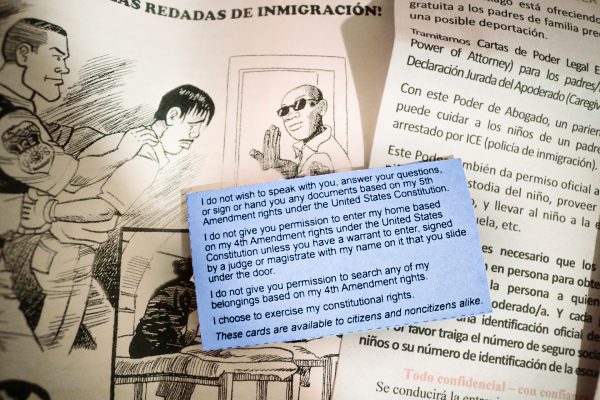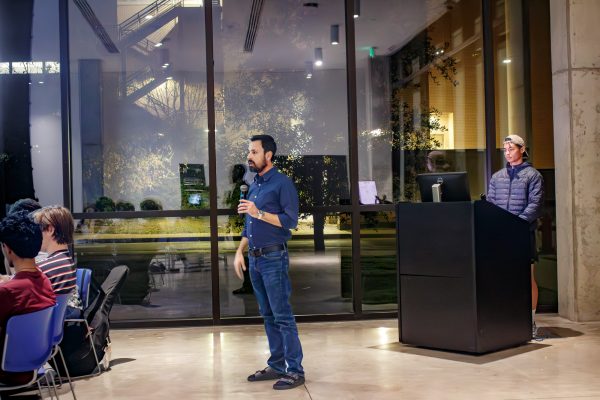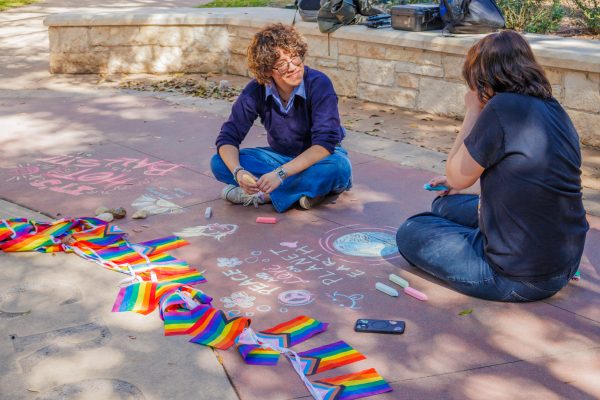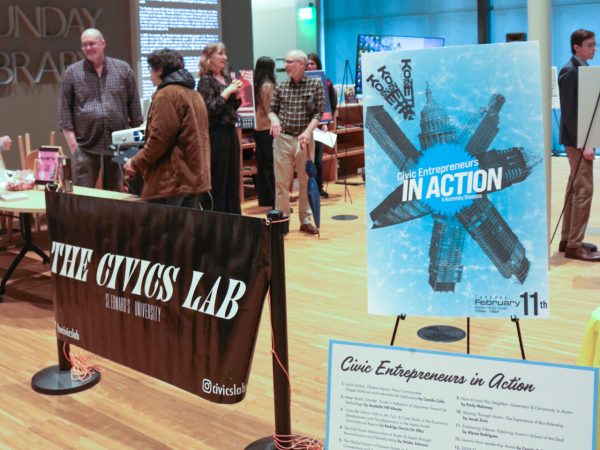Panel discussing interfaith dialogue addresses online anonymity
St. Edward’s University students, faculty and staff, along with members of the Austin community, gathered last week for a panel discussing interfaith dialogue that occurs online.
At the Sept. 27 panel, four St. Edward’s professors discussed going beyond tolerating people of other religions, the difficulty of moderating comments posted on online news stories and online anonymity.
The panel was a response to the online comments St. Edward’s Assistant Professor of Religious and Theological Studies Jennifer Veninga received on a guest editorial she wrote with her father, James Veninga, for the Wausau Daily Herald of Wausau, Wis.
The panel is part of a year-long conversation on “Religious Violence and Interreligious Dialogue: Challenges and Opportunities” based on the Second Vatican Council document, “Nostra Aetate.” The declaration calls for Catholics to engage in interreligious dialogue and to appreciate different religions.
James Puglisi, associate director of Campus Ministry, introduced the Nostra Aetate panel. Those on the panel used the feedback the Veningas received on their editorial as an opportunity to talk about both interfaith dialogue and the online commenting function of newspapers.
The Veningas’ editorial was published on July 26, four days after Anders Behring Breivik bombed Oslo’s government center and killed at least 76 people in Norway.
In the editorial, the Veningas state that Breivik “blogged extensively about the need for a war against Muslims and Marxists” after he became distraught with the immigration of Muslims into Norway and had called for the preservation of Christianity in Europe.
“Unfortunately, this tragedy is a sobering reminder that terrorism can be home-grown,” wrote the Veningas in the editorial. “It is also a wake-up call that fear and hatred of the other—of those who are different from us—can so easily give way to the kind of violence that threatens the well-being of communities and nations.”
The Veningas call for Americans to “resist fear and act hospitably toward [their] neighbor[s].”
At the panel, entitled “Speaking Across Difference: Challenges and Promises of Public Discourse on Religion,” Veninga said she did not feel that her article was very controversial. She was surprised when, the day after the article was published online, she received numerous xenophobic comments from people who, like Breivik, have Islamophobic beliefs.
“It kind of shut me down … but I realized that these are the people I need to be in dialogue with,” Veninga said.
Ed Shirley, a professor of religious and theological studies at St. Edward’s, opened up the discussion by stressing the importance of going beyond religious tolerance.
“We tend to take any group we don’t know much about and fill in our very sad gaps,” Shirley said. “When you actually learn about the religion, you can move from tolerance to respect … You might even move from respect to admiration, and then from admiration to emulation.”
Jena Heath, assistant professor of journalism and faculty advisor to Hilltop Views, spoke about the possibility of moderating online comments.
“News organizations are struggling with how to go about creating online commenting policies,” Heath said. “There is no more of a way to prevent uncivil comments than to prevent a madman who decides to open fire. There are always going to be people who decide to behave badly.”
Because the Internet provides more sources of information than ever before, Heath urged news consumers to do more reading and discerning of news to decide what sources are responsible and credible.
“We have to read more news, but instead we’re reading less,” she said.
Billy Earnest, assistant professor of communication, saw two solutions to the issue of xenophobic commenting. First, he called for those who care to “be bothered to actually post.” He urged people to respond to comments and disagree with people who speak out against various religions.
His second solution was to go back to the earlier method of commenting on news articles—letters to the editor. Before the Internet, news readers had to write letters to the editor in order for their opinions to be addressed. The newspaper could decide whether to post the letter, and the author would always be identified by name.
Earnest said forcing commenters to identify themselves would help the situation but not cure it.
“The wrong thing for us to do would be to ignore [the issue] and wait for it to go away,” he said.
After the members of the panel had spoken, the discussion was opened up to questions and comments from the audience.
One audience member emphasized the importance of engaging in conversations with those with opposing beliefs, no matter how hostile the opponent’s attitude. Veninga said that although she had originally shut down, perhaps she should have responded to the xenophobic comments.
Heath called on her experiences working as a journalist while covering George W. Bush’s presidential campaign after the Sept. 11, 2001, attacks on the World Trade Center. She said she made it a point to answer all the e-mails she received from readers, no matter how hostile. She said as long as she was respectful, the conversation often resulted in civil discourse.
“Some of these people eventually became sources,” Heath said.
Richard Bautch, associate dean of the School of Humanities, said he hopes the people who attended the panel were affected by it.
“Among other things, I hope that we all can listen better, even when people speak in harsh tones about religion and public life,” Bautch said.


